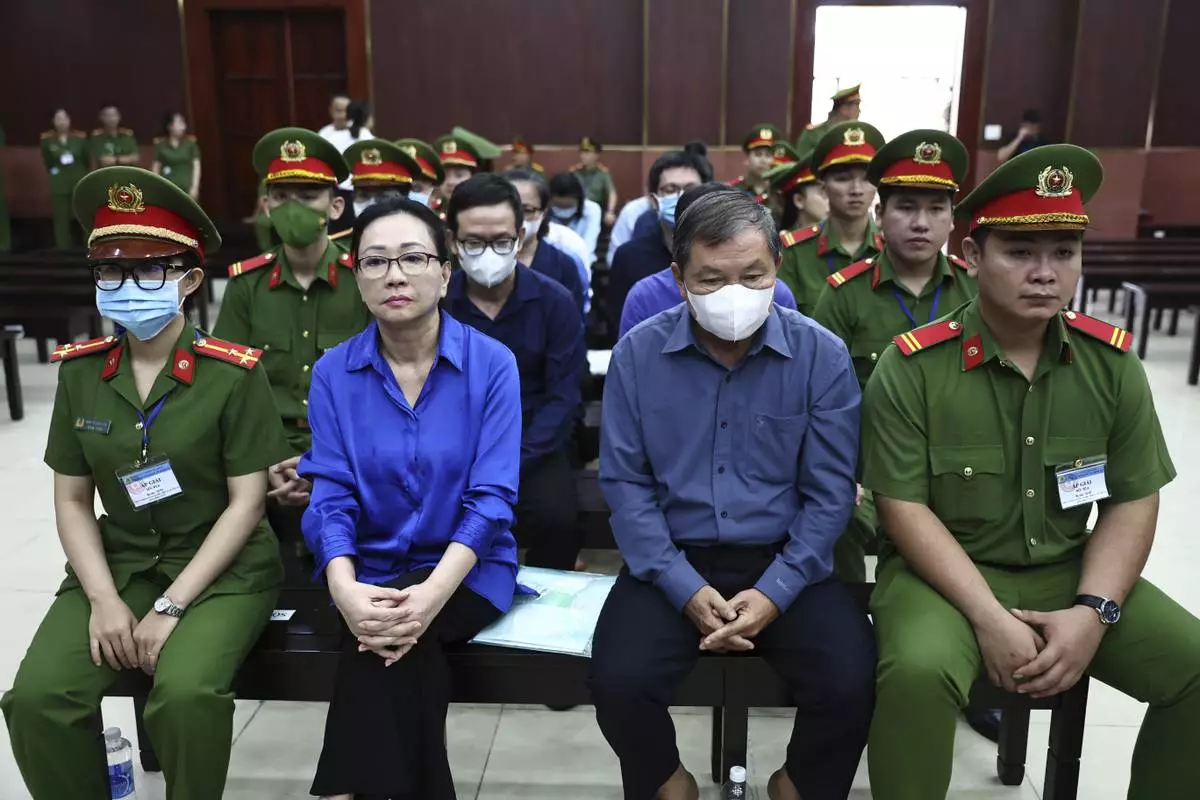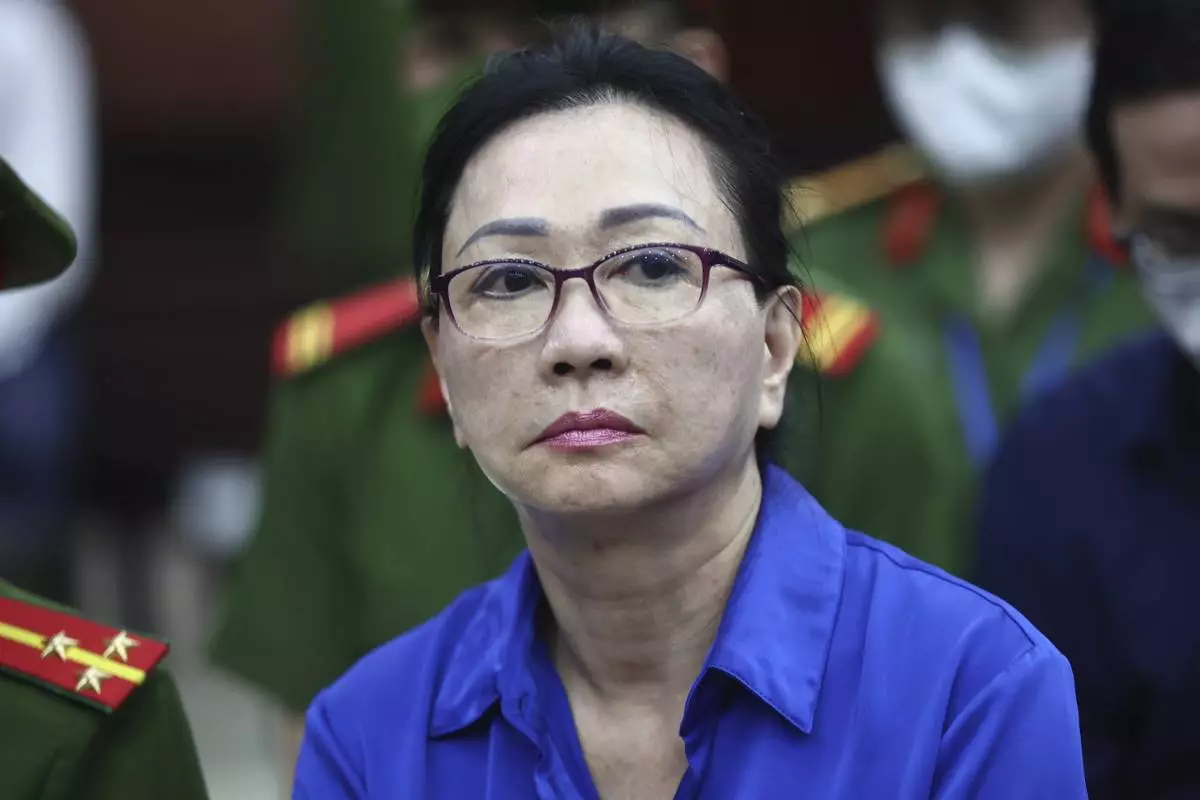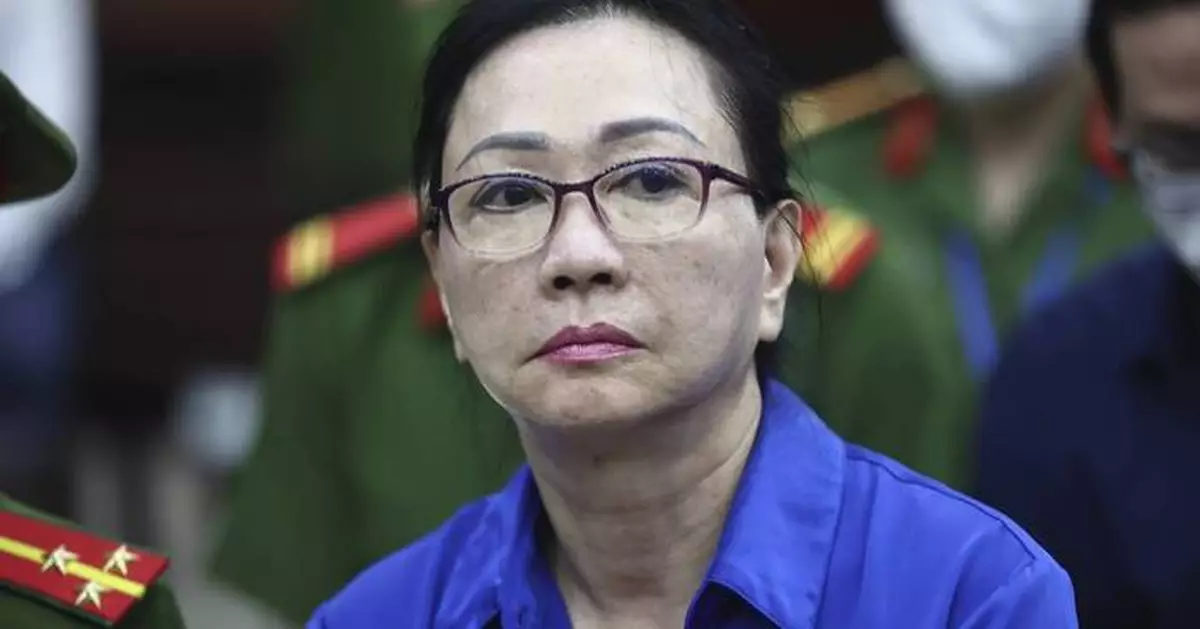HANOI, Vietnam (AP) — A court in Vietnam on Tuesday upheld the death sentence for real estate tycoon Truong My Lan but said it could be commuted to life if she reimburses some $11 billion, or three-fourths of what she defrauded in the country’s biggest financial crime.
The scale of her fraud shocked the nation, with analysts raising questions about whether other banks or businesses had similarly erred. It has also dampened Vietnam’s economic outlook and made foreign investors jittery at a time when Vietnam has been trying to position itself as a home for businesses pivoting their supply chains away from China.
Lan, 67, was convicted in April of embezzlement and bribery amounting to $12.5 billion, equivalent to 3% of the country’s GDP. As chairperson of the Van Thinh Phat real estate firm, the court said she illegally controlled Saigon Joint Stock Commercial Bank between 2012 and 2022 and allowed 2,500 loans that cost the bank $27 billion in losses.
A higher court in Ho Chi Minh on Tuesday rejected her appeal of the conviction but said that her death sentence could be commuted to life if she reimburses three-fourth of the losses, working out to around $11 billion, state media reported.
Her lawyers argued that she had repaid the money but the court disagreed since there were legal issues with some of the seized properties and prosecuting agencies couldn't assess their value, VN Express reported.
Lan's lawyers also noted several mitigating circumstances — she had admitted guilt, showed remorse and had paid back part of the amount.
“I feel pained due to the waste of national resources,” she said last week, according to state media.
But the court said her violations had negatively impacted banking, caused public disorder and eroded people’s trust, VN Express said.
Under Vietnamese law, death sentences aren't immediately carried out and there is an extended legal process, said Nguyen Khac Giang, a visiting fellow in the Vietnam Studies Program at Singapore’s ISEAS–Yusof Ishak Institute. He added that Lan would seek another review of the case or a presidential pardon to reduce her sentence.
“Moreover, if she repays at least three-quarters of the misappropriated funds, the court may consider commuting her sentence to life imprisonment,” he said.
Her arrest was among the most high-profile in an anti-corruption drive in Vietnam that intensified after 2022. The so-called Blazing Furnace campaign touched the highest echelons of Vietnamese politics.
Lan, 67, and her family had set up the Van Thing Phat company in 1992, after Vietnam shed its state-run economy in favor of a more market-oriented approach open to foreigners. The company grew into one of Vietnam’s richest real estate firms, with luxury residential buildings, offices, hotels and shopping centers.
This made her a key player in the country’s financial industry. She orchestrated the 2011 merger of the beleaguered SCB bank with two other lenders in coordination with Vietnam’s central bank. The court said that she used this to tap SCB for cash and, according to government documents, owned more than 90% of the bank while approving thousands of loans to “ghost companies.”
These loans, according to state media, found their way to her and she bribed officials to cover her tracks.
The scale of the crime meant the case was split into two trials, and Lan was sentenced to another life sentence in October. At that trial, she was accused of raising $1.2 billion from nearly 36,000 investors by issuing bonds illegally through four companies, state media reported.
She was also found guilty of siphoning off $18 billion obtained through fraud and for using companies controlled by her to illegally transfer more than $4.5 billion in and out of Vietnam between 2012 and 2022.
Vietnam has handed down more than 2,000 death sentences in the past decade and executed more than 400 prisoners. It is a possible sentence for 14 different crimes but is typically applied for cases of murder and drug trafficking.

Vietnamese real estate tycoon Truong My Lan, second left, attends trial in an appeal she filed against her death sentence in a financial fraud case in Ho Chi Minh City, Vietnam, Tuesday, Dec. 3, 2024. (Tran Quynh/VNExpress via AP)

Vietnamese real estate tycoon Truong My Lan attends trial in an appeal she filed against her death sentence in a financial fraud case in Ho Chi Minh City, Vietnam, Tuesday, Dec. 3, 2024. (Tran Quynh/VNExpress via AP)


















